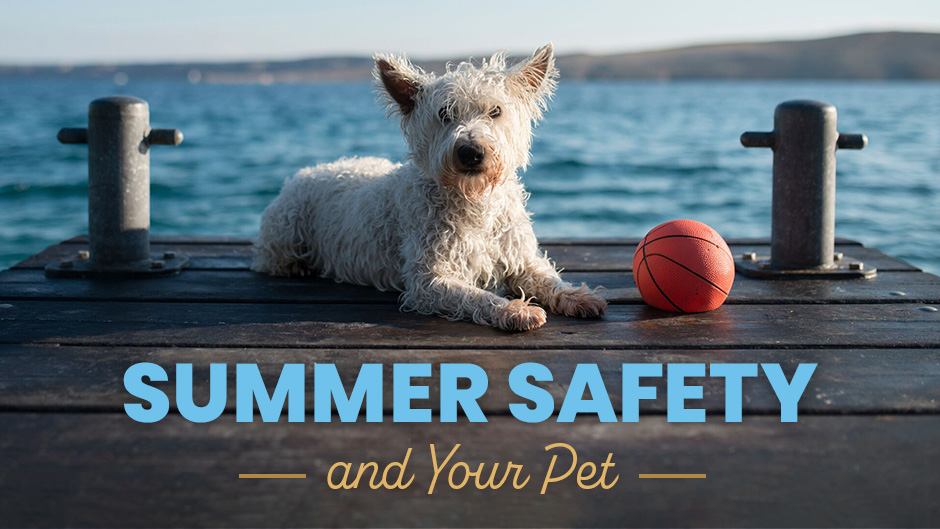According to the website Pets and Parasites, the risk of contracting heartworm or Lyme disease is especially high this year. This has been true of the last five years as well, with the prevalence of both diseases being up 20 percent since 2013. One reason for this is that summers have been hot and wet across the nation for the last several years. Once a dog becomes infected, it's much easier for him to spread these serious tick-borne illnesses to other dogs. Cats can get heartworm or Lyme disease as well, although it is far less common for them.
At Minnesota Veterinary Hospital, we urge all pet parents to ensure that their dog or cat has year-round parasite protection. We would be happy to recommend specific products from our online store. Our clinic also offers an optional Lyme disease vaccination. It's important to protect your pet from other parasites as well, including fleas and the various types of intestinal worms other than heartworm.
Swimming Safety
Dogs love to be where the action is, which often includes the beach or pool for many families. If you choose to take your dog swimming, make sure that you remain physically next to her in the water. Not all dogs instinctively know how to swim, and it only takes a few seconds of diverting your attention elsewhere for a tragic accident to happen. It's also important to make sure that your dog has a properly fitting life jacket if she joins you for a boat ride.
Backyard Barbeques
It's that wonderful time of year when invitations to graduations, weddings, birthday parties, and other fun events seem to arrive nearly every weekend. Perhaps you even plan to host your own party or picnic. If so, make sure you know where your dog or cat is for the duration of the event. Persistent pets can get into trouble eating foods that they shouldn't or by burning themselves on an outdoor grill. Larger dogs can even knock guests down.
If you're the host, consider keeping your pet in a kennel or a secured area in the house until the guests go home. As for invitations to other people's homes, it's best to leave your pet at home.
Pets in Hot Cars: Just Say No
In the season where we barely had a spring, it can be hard to shift into a summer mindset and realize that cars are already dangerously hot places to leave a pet. This is true even if you crack the windows a bit or you're only gone for a short time. That's all the longer it takes for the temperature inside your car to go over 110 degrees and send your pet into heatstroke. In this heat, it's safer to leave your pet in an air-conditioned home while you run errands. Be sure to keep an eye out for other pets in hot cars and call the police immediately if you spot one.
Your Partner in Summer Pet Safety
We wish you and your pet a happy and safe summer. Please contact us at Minnesota Veterinary Hospital with additional questions or to schedule a preventive care exam for your dog or cat.
Photo credit: indigo-stock / iStock Photo

